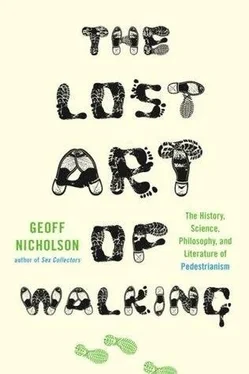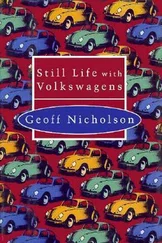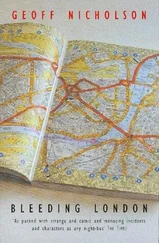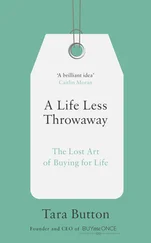Longley was regarded as one of the ‘good’ council estates. ‘Good’ meant low on crime, not bad schools, not too many problem families. These things are comparative and the gradations were very fine. Eventually my parents moved into the private sector and bought their own house, but that took some time. I was well into my adolescence before they made the move.
Longley was the place I grew up and the place I knew best. I’d walked all its streets endlessly, and it was a very long time since I’d set foot there.
♦
Certain ironists like to say that Sheffield is just like Rome: it’s built on seven hills. There, of course, the resemblance ends. And Roman citizens never had to cope with Sheffield winters, long, hard, with plenty of snow. Because I’d got into the ‘good school’ over on the other side of the city I had to take two bus rides to get there, one downhill from home into the center of town, then a second one uphill to where the school was.
When the snow fell buses could get down the hills but not up. It wasn’t unusual to find yourself stranded in the city center surrounded by hills that buses couldn’t get up. You either walked to school or you walked home. Sometimes you did both. When I complained to my mother about the misery and downright unfairness of this state of affairs she said I should be like Felix the Cat, and keep on walking.
There’s a persuasive theory that the hills of Sheffield are what keep the old people’s hearts ticking and in good health. All over the city little old men and women struggle to walk up impossibly steep hills, often weighed down by shopping, and they struggle and stop for breath every now and again, but they keep going. They keep walking.
My oldest friend, Steve, who still lives in Sheffield, has inlaws who live on the flatlands of Hull, a city fifty miles away, and at one time they used to visit him in Sheffield, but they gave it up. The hills were too much for them. A lifetime’s easy walking on level ground had left them without the right stuff to tackle Sheffield’s hills.
♦
There were many things my family didn’t do very well, and holidays were the worst of them. Both my parents seemed to believe in holidays and think they were a good thing. They wanted to go away somewhere, and yet there was never anywhere they particularly wanted to go or anything they particularly wanted to do when they got there. By default, we more often than not went to Blackpool, a seaside town that’s easy to praise for its gritty working-class vulgarity and energy, until you get there.
My mother always complained that there was nothing to do on holiday in Blackpool, that all people did all day was ‘mooch around’ — walk up and down the seafront. She had a point. The boardinghouses we stayed in had a ridiculous and strictly enforced rule that ‘guests’ had to be out of the premises from ten in the morning till five in the evening. You were paying for bed, breakfast, and an evening meal, nothing else. That was a lot of time to stay outside. Blackpool had a beach backing onto the Irish Sea, and both beach and sea were generally too cold and bleak to engage with, but it had a six-mile-long promenade known as the Prom. That was where you spent the day mooching.
Along the Prom there were fairground rides, a local version of the Eiffel Tower, bingo halls, souvenir shops, stalls selling fish and chips, seafood, sticks of rock candy, but we never went to these places. My parents regarded them as a frivolous and needless expense. Going to the seaside was holiday enough. Why gild the lily? Instead we joined all the other moochers, walking up and down the Prom, all day long, dragging their miserable kids behind them, not looking as though they were having the slightest bit of fun. The Nicholson family fit right in.
I can’t swear that we really walked the full length of the Prom in both directions every day, but it certainly felt like it. Even though there was public transportation, and even though we weren’t really going anywhere, my dad insisted we go there on foot. Today I wonder whether he was enjoying himself or punishing himself, or punishing my mother and me, or whether he was simply doing his best and really didn’t know how to take or share pleasure.
The problem of what to do as a family was never solved. After my father died I did my best to be a good son to my widowed mother. I was living in London at the time and she would come to stay and I’d try to entertain her. It was never easy. There was still never anything she wanted to do, and my attempts to second-guess were hopeless. When I suggested once that we might have a walk round the London Zoo, she reacted as though I’d suggested she might like to watch the goings-on in a brothel. And so we did nothing much except wander round London’s streets and shops. We covered miles, and she never complained, but I always had the terrible feeling that I was extending an unhappy family tradition.
♦
My dad wasn’t good at teaching me things. I was a slow learner and he was short of patience. When his first attempts to teach me how to operate, for instance, a yo-yo, a tenon saw, or eventually a motorcar didn’t bring instant results, there generally wasn’t a second attempt. He had fixed ideas about how things should be done, including walking.
I was happy to amble along, slouching, hands in pockets in a sloppy, uncoordinated way, which I think is normal for kids. In the course of writing this book I’ve spent time watching children walk, and they’re all over the place, no rhythm, no balance, no sense of purpose. Maybe it’s because they don’t have anywhere to go.
My dad pointed out that if you swung your arms you made much better progress. Your arms acted like pendulums carrying you inexorably forward. I could see he was right. I tried it. It worked. This was one of the few things I managed to pick up at the first attempt. My father wasn’t nearly as pleased as I’d have liked him to be.
There was nothing pretentious or aspirational about my father. In fact, it always seemed to me he put far too much energy into insisting on how ordinary he was. Nevertheless, he displayed a curiously aristocratic belief that the rules applying to other people didn’t apply to him. So if we were out walking and saw signs that said ‘Private, Keep Out, No Trespassing’, they made no impression on my dad. As far as he was concerned these notices were intended only for others.
It might have been nice to think my father was a socialist firebrand who refused to obey the rules imposed upon him by the landowning classes, and in the north of England there was a Bolshy local tradition of walking where you weren’t supposed to walk: political walking. In 1932 five hundred or so walkers performed a famous and symbolic ‘mass trespass’ on Kinder Scout in the nearby Peak District, trying to assert the right to walk across private open land that was used only twelve days a year for grouse shooting. There were clashes with police and gamekeepers, some fights, some arrests, but eventually, many years later, a ‘right to roam’ was established in England. It was, and still is, regarded as a mighty triumph for the working classes of northern England. My father, however, didn’t quite belong to this tradition. He wasn’t defiant, nor was he oblivious, but it was as though he believed that the makers of ‘No Trespassing’ signs would surely regard him as a special case.
And so one Sunday morning, when I was about ten years old, we found ourselves tramping along a woodland path on the outskirts of Sheffield, and we were confronted by a ‘Keep Out’ sign. Naturally my father ignored it and we kept on walking. We hadn’t gone more than twenty or thirty steps before we were confronted by a large man sitting on the back of a large horse, and the man was furious. He was evidently the landowner and the one responsible for putting up the sign. There was a good deal of ‘What the bloody hell do you think you’re doing on my land? Can’t you read?’ and so on. He was pompous, fleshy, tweedy. He did have a sort of authority about him, perhaps because he was on horseback, but that didn’t prevent him from also appearing ridiculous.
Читать дальше












